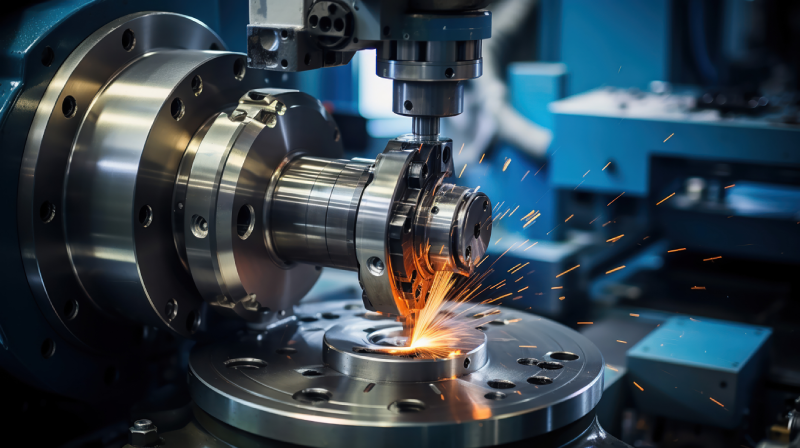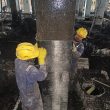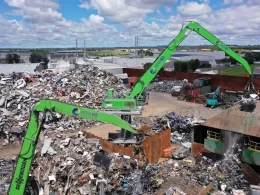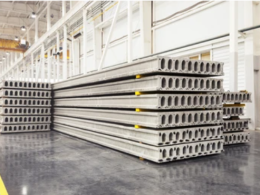Manufacturers working with high-performance metals increasingly rely on CNC machining for specialty alloys to meet the precision demands of advanced industries such as aerospace, automotive, energy, and medical. This method enables the shaping of complex geometries while maintaining tight tolerances and the integrity of tough, exotic materials.
In industries like aerospace, medical devices, and oil & gas, components must withstand extreme heat, corrosion, and stress. Specialty alloys—including titanium, Inconel, and Hastelloy—deliver this high performance. Yet machining these materials demands exacting precision and advanced processes. CNC machining offers the control, repeatability, and flexibility needed to shape specialty alloys into parts that meet tight specifications. In this article, we explore how precision CNC machining brings out the best in specialty alloys, covering key techniques, tooling, applications, and quality controls that ensure both accuracy and durability.
✅ What This Article Covers
-
What Are Specialty Alloys?
-
Why CNC Machining Is Ideal for Specialty Alloys
-
Applications Across Key Industries
-
Advantages of Using CNC for Specialty Metals
-
Choosing the Right CNC Machining Partner
-
Key Considerations in Machining Exotic Materials
-
Trends and Innovations
-
Final Thoughts
What Are Specialty Alloys?
Specialty alloys refer to metal blends engineered for specific performance characteristics, such as high strength, corrosion resistance, thermal stability, or conductivity. Examples include Inconel, Hastelloy, titanium alloys, tool steels, and duplex stainless steel. These materials are essential in mission-critical components that must perform under extreme conditions.
Machining these alloys demands advanced techniques and high-precision equipment. That’s where CNC machining stands out.
Why CNC Machining Is Ideal for Specialty Alloys
CNC (Computer Numerical Control) machining provides precision, repeatability, and flexibility—essential when working with alloys that are costly or difficult to shape using conventional methods. Key advantages include:
-
Tight Tolerances: CNC machines can hold tolerances within a few microns, crucial for applications like medical implants or aerospace parts.
-
Complex Geometry: Multi-axis CNC systems can machine intricate parts in a single setup.
-
Reduced Waste: Automated precision reduces scrap when working with expensive specialty materials.
-
Material Versatility: CNC systems can be adapted for materials with different mechanical properties and machining behaviors.
Applications Across Key Industries
Specialty alloys are the backbone of innovation in multiple sectors. Here’s how CNC machining enables breakthroughs in these fields:
Aerospace
Titanium and Inconel components for jet engines, turbines, and fuselages require extreme heat resistance and high strength-to-weight ratios. CNC machining ensures consistent quality and dimensional stability.
Automotive
High-performance vehicles increasingly use aluminum and magnesium alloys for engine parts and structural components. CNC precision allows for tight clearances and optimized performance.
Medical
Titanium and cobalt-chromium are widely used in orthopedic and dental implants. CNC machining ensures biocompatibility and the high precision needed for human-compatible devices.
Oil and Gas
Corrosion-resistant alloys like Monel and Hastelloy are ideal for valves, pumps, and downhole tools. CNC machining maintains critical specifications for these parts under extreme pressure and temperature conditions.
Advantages of Using CNC for Specialty Metals
Beyond the technical ability to handle hard-to-machine materials, CNC machining offers commercial advantages for manufacturers and engineers:
-
Speed to Market: Rapid prototyping and faster turnaround with digital programming.
-
Customization: Easy implementation of design changes without new tooling.
-
Consistency: Every part produced is virtually identical.
-
Lower Total Cost: Though the upfront setup may be higher, the reduced scrap, faster production, and fewer errors lower the total project cost.
Choosing the Right CNC Machining Partner
Not all CNC providers are equipped to handle specialty alloys. The right machining partner should have:
-
Experience with your specific alloy.
-
Modern multi-axis equipment.
-
Skilled programmers and machinists.
-
Advanced quality control systems.
-
Tooling and cooling systems appropriate for exotic metals.
At Elitemoldtech, we provide precision CNC machining solutions specifically tailored for advanced and exotic materials.
Key Considerations in Machining Exotic Materials
When dealing with specialty alloys, several factors must be considered during the machining process:
Tool Wear and Selection
Specialty alloys are often abrasive and hard, leading to increased tool wear. Using carbide or diamond-coated tools helps maintain edge integrity.
Cutting Speeds and Feeds
Proper calibration of speed, feed rate, and depth of cut is critical to avoid tool breakage and thermal distortion.
Coolant Strategy
High-pressure coolant delivery is essential to keep temperatures down and ensure clean cuts.
Workholding Stability
Fixtures must be rigid to avoid vibration, especially when machining thin walls or complex contours.
Trends and Innovations
The field of CNC machining for specialty alloys is rapidly advancing:
-
Adaptive Machining: AI-driven software adjusts toolpaths in real time based on material behavior.
-
Hybrid Machining: Combining additive manufacturing with CNC machining for optimized material use.
-
Smart Monitoring: Sensors on tools and machines provide live data to enhance quality and efficiency.
-
Green Machining: New lubricants and recyclable coolant systems reduce environmental impact.
These trends are shaping the next generation of high-precision manufacturing.
Final Thoughts
When it comes to producing complex components from high-performance metals, CNC machining remains the most trusted solution. Whether for aerospace components, medical implants, or energy systems, the process offers unmatched accuracy, speed, and adaptability. By leveraging CNC machining for specialty alloys, manufacturers ensure the integrity, safety, and efficiency of mission-critical parts.












